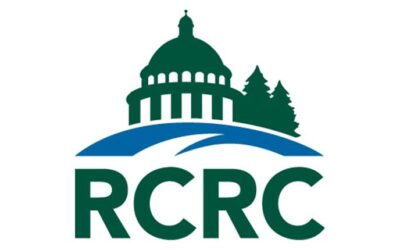RCRC, in coalition with local government partners, supports Assembly Bill 964, authored by Assembly Member Heather Hadwick (R-Alturas). This measure would take an important first step to reform the current process of reimbursement for and administration of state...
PG&E Releases 2026-2028 Wildfire Mitigation Plan
On Friday, April 4th, PG&E filed its comprehensive 2026-2028 Wildfire Mitigation Plan (WMP) with regulators at the Office of Energy Infrastructure Safety (Energy Safety). A WMP describes how the utility is constructing, maintaining, and operating its lines and...
RCRC-Sponsored Bills Advance Through Policy Committees
Several RCRC-sponsored measures passed their first policy over the last two weeks while two others will be heard after the Legislature returns from Spring Break. AB 993 (Hadwick) expands eligibility for CalEPA’s Rural Certified Unified Program Agency (CUPA)...
Legislative Action on “Budget Bill Jr.”
Before leaving for Spring Recess on Thursday, the State Legislature approved Assembly Bill 100. Commonly referred to as a “Budget Bill, Jr.” this measure amends a prior Budget Act; this has become a routine exercise every spring. This measure makes several program...
Barbed Wire on Hiatus April 18
The RCRC Barbed Wire will be on hiatus next week, April 18th. The California State Legislature adjourned for Spring Recess on April 10th and will return on April 21st. The U.S. House of Representatives and U.S. Senate will also be on recess, as lawmakers work in their...
Highlights of the Latest Bills in the 2024-25 State Budget Package
Over the past week, the Legislature acted on several budget-related bills, including two “budget bills junior” and a handful of budget trailer bills. The measures introduced and acted upon, collectively reflect an agreement between Governor Gavin Newsom, Senate...
Legislature Sends Budget to Governor’s Desk Ahead of June 15th Deadline
On Thursday, June 13 (ahead of the constitutional deadline of June 15th to pass a balanced budget for the next fiscal year) the Legislature passed the Budget Act of 2024 (Assembly Bill 107), as well as two additional budget related bills, Senate Bill 154 (Suspension...
Update on the 2024-25 State Budget
On May 14th, finance letter proposals were submitted by the Administration to the chairpersons of the budget committees in each house. These proposals provided additional insight and detail into Governor Newsom’s 2024 May Revision released on Friday, May 10,...
RCRC’s Rural Rundown of the Governor’s May Revision of the 2024-25 State Budget
On Friday, May 10th, Governor Newson released his Administration’s May Revision of the 2024-25 state budget. This revision is the next step in the State’s budget negotiations with lawmakers, who must pass a budget by June 15 for the July 1 start of the 2023-2024...
RCRC’s Rural Rundown of Governor Newsom’s 2024-25 Proposed Budget
On Wednesday, January 10th, Governor Newson released his Administration’s 2024-25 Proposed Budget. This proposal begins the budget development process between the Governor and Legislature; with the onus on lawmakers who must pass a budget by June 15th for the July...
Fire Safe Electrical Corridors Act Reintroduced in the House
On April 2, U.S. Representatives David Valadao (R-Kings County) and Salud Carbajal (D-San Luis Obispo County) reintroduced the Fire Safe Electrical Corridors Act. This bipartisan legislation would allow the U.S. Forest Service to approve the removal of hazardous trees...
Public Land Use for Housing a Key Issue in Nomination Hearing for DOI Deputy Secretary Pick Katherine MacGregor
On April 2, the U.S. Senate Energy and Natural Resources Committee held a hearing on the nomination of Katherine MacGregor for the role of Deputy Secretary of the Interior. During the hearing, Ms. MacGregor discussed the federal government’s role in using public lands...
Rural Housing Service Reform Act of 2025 Introduced in U.S. Senate
This week, Senators Mike Rounds (R-SD) and Tina Smith (D-MN) reintroduced the Rural Housing Service Reform Act of 2025 (one-pager | full text). This measure is designed to modernize Rural Housing Service programs of the U.S. Department of Agriculture (USDA) by...
State to Increase Gray Wolf Management Efforts
Earlier this week, the California Department of Fish and Wildlife (CDFW) announced increased efforts to manage the state’s gray wolf population, which has become robust and increasingly problematic since the first wolves began migrating from Oregon in 2011. The...
Bill of the Week: Senate Bill 496 (Hurtado) – Advanced Clean Fleets Regulation: Appeals Advisory Committee: Exemptions
RCRC is sponsoring Senate Bill 496, authored by Senator Melissa Hurtado (D-Bakersfield), This measure creates additional pathways for local agency fleets to receive necessary exemptions under the California Air Resources Board’s (CARB) Advanced Clean Fleets...
Bill of the Week: Senate Bill 607 (Wiener) – California Environmental Quality Act
RCRC is co-sponsoring Senate Bill 607 (Scott Wiener, D-San Francisco) with Prosperity California, Housing Action Coalition, and the Bay Area Council. The bill includes several targeted reforms to refocus the California Environmental Quality Act (CEQA) on real...
Congressman LaMalfa Introduces Resolution to Repeal Longfin Smelt Listing in the ESA
On March 21, Congressman Doug LaMalfa (R-Richvale) introduced a Congressional Review Act resolution, along with Representatives Vince Fong (R-Bakersfield), Tom McClintock (R-Elk Grove), and David Valadao (R-Hanford), to repeal the Biden Administration’s listing of the...
Letters Needed in Support of RCRC Sponsored AB 632 (Hart) – Local Ordinances: Administrative Fines or Penalties
RCRC sponsored Assembly Bill 632 (Hart), is heading to the Assembly Committee on Local Government on Wednesday, April 9. RCRC is asking for support letters from our counties to help bolster our advocacy efforts. This measure would enhance local enforcement mechanisms...
RCRC Board Member Spotlight: Bob Nelson (Santa Barbara County) – RCRC Second Vice Chair
This is the third installment of the RCRC Board Member Spotlight, a recurring feature of the Barbed Wire! The Board Member Spotlight is intended to familiarize subscribers with RCRC Board members, providing insights from their background in public service to their...
U.S. Senators Ask USDA to Reverse Canceled Local Food Purchases for Schools, Farmers
This week, Senator Adam Schiff (D-CA) led a group of 31 Senators in a letter that voiced “serious concerns” about the U.S. Department of Agriculture’s cancelation of food purchase programs across the United States. They noted that the cancelation will have harmful...
Joint Task Force to Target Underutilized Federal Land for Housing
This week, Department of Interior Secretary Doug Burgum and Housing and Urban Development Secretary Scott Turner announced the establishment of a Joint Task Force which will focus on using underutilized federal land suitable for housing with the aim to increase...
Bill of the Week: Assembly Bill 470 (McKinnor)—Telephone Corporations: Carriers of Last Resort
RCRC opposes Assembly Bill 470, authored by Assembly Member Tina McKinnor. This measure would allow any Carrier of Last Resort (COLR) telephone service provider to abandon its obligations to provide reliable and affordable access to basic telephone service in an...
EPA Announces Plans to Revise WOTUS Rule
On March 12, Environmental Protection Agency (EPA) Administrator Lee Zeldin announced that EPA will work with the United States Army Corps of Engineers to review the definition of “Waters of the United States.” The agencies will ensure that a revised definition...
CalRecycle to Restart SB 54 Single Use Packaging Regulatory Process
On Friday, March 7, Governor Newsom withdrew CalRecycle’s long-anticipated SB 54 regulations, which were expected to be submitted to the Office of Administrative Law for final approval before the deadline to finalize regulations under the Administrative Procedure...
Legislation Introduced to Expand Smith River National Recreation Area to Include Oregon
On March 12, California’s U.S. Senators Adam Schiff and Alex Padilla joined Oregon Senators Jeff Merkley and Ron Wyden in introducing the Smith River National Recreation Area Expansion Act, which would expand the Smith River National Recreation Area by 58,000 acres....
Senate Committee Advances Bill to Enact Water Settlement Between Tule River Tribe and the U.S.
On March 7, the Senate Committee on Indian Affairs advanced legislation introduced by California’s U.S. Senators, Alex Padilla and Adam Schiff, which would formally recognize the reserved water rights of the Tule River Tribe and quantify the Tribe’s water right of...
U.S. Representatives Jim Costa and Adam Gray Urge Presidential and Gubernatorial Cooperation on Central Valley and State Water Projects
On March 10, U.S. Representatives Jim Costa (D-Tulare) and Adam Gray (D-Madera) sent a letter urging President Trump and Governor Newsom to work together to address the long-term operations of the Central Valley Project (CVP) and State Water Project (SWP). In efforts...
Congress Introduces Bicameral Legislation to Improve Access to Agricultural Disaster Relief
On March 12, U.S. Senators Alex Padilla (D-CA) and Thom Tillis (R-NC), along with Representatives Jimmy Panetta (D-Monterey), Kat Cammack (R-FL-03), Zoe Lofgren (D-Monterey), and Austin Scott (R-GA-08), announced bipartisan, bicameral legislation to improve access to...
EMBER Act Reintroduced as Part of Larger Congressional Package
On March 11, Congressman Ken Calvert (R-Riverside County) reintroduced the Ending Major Borderland Environmental Ruin from Wildfires (EMBER) Act, which would reduce the threat of wildfires along the southern border and protect the safety and mission of our Border...
FISH Act Reintroduced in Congress
On March 6, the Federally Integrated Species Health Act (FISH Act) was introduced by Representative Ken Calvert (R-Riverside County) in the 119th Congress. This measure seeks to amend the Endangered Species Act of 1973 by transferring certain functions from the...
 Sarah Dukett
Senior Policy Advocate
Sarah Dukett
Senior Policy Advocate
 Leigh Kammerich
Senior Policy Advocate
Leigh Kammerich
Senior Policy Advocate
 John Kennedy
Senior Policy Advocate
John Kennedy
Senior Policy Advocate
 Staci Heaton
Senior Policy Advocate
Staci Heaton
Senior Policy Advocate
 Tracy Rhine
Senior Policy Advocate
Tracy Rhine
Senior Policy Advocate
 Eric Will
Policy Advocate
Eric Will
Policy Advocate
 Mary-Ann Warmerdam
Senior Vice President Governmental Affairs
Mary-Ann Warmerdam
Senior Vice President Governmental Affairs


























